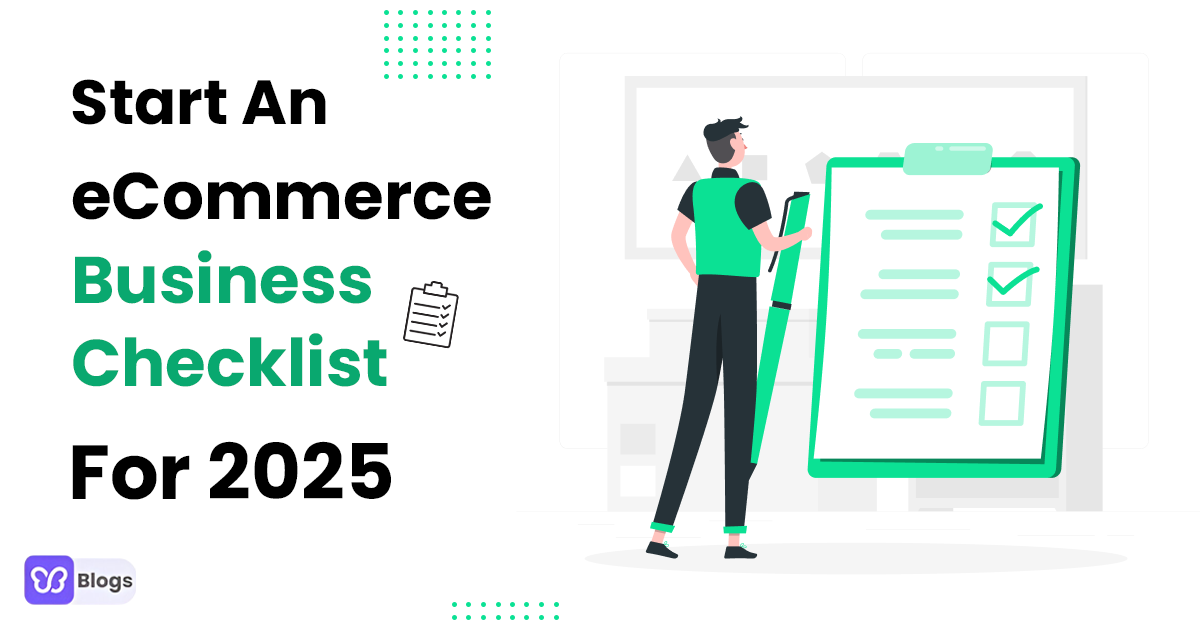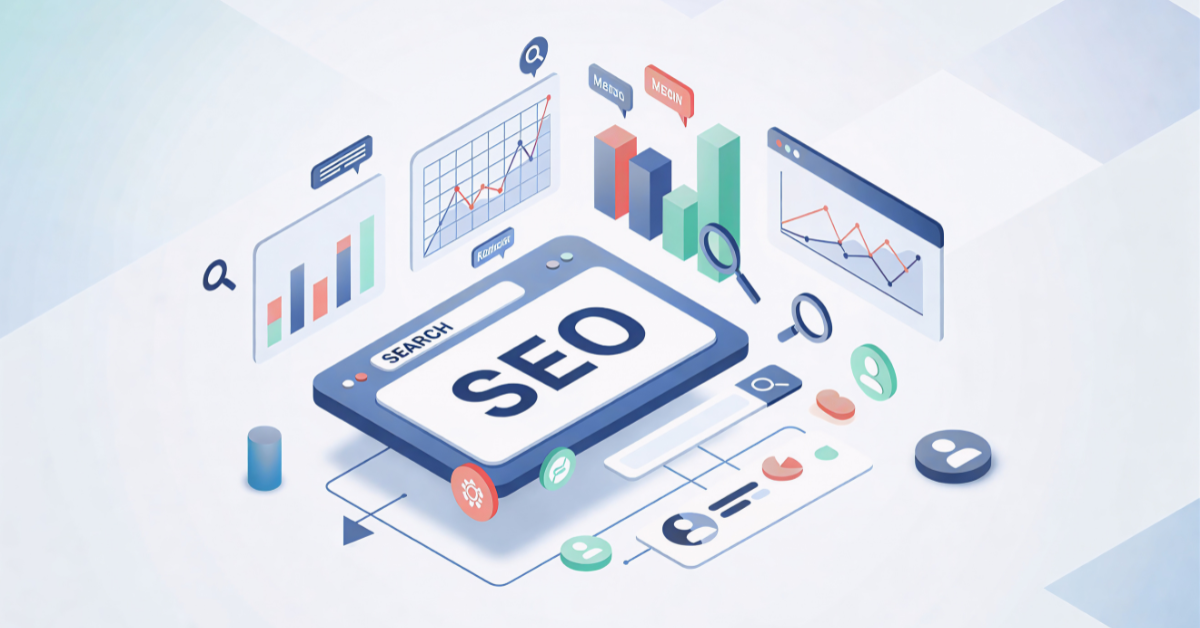The current pandemic has forced many brick-and-mortar stores to make an entry into the ecommerce world. Although the present situation is very different from what we witnessed last year, there is still a massive shift in consumer behavior regarding their shopping preferences.
People are still unwilling to leave their houses to shop for necessities and luxury goods.
And that's where online businesses step in.
But as we said, many physical stores have already stepped into the world of ecommerce. That means it wouldn't be easy for new entrants to make their business get noticed as thousands of other brands are already selling more or less the same stuff as theirs.
While starting an ecommerce business today is challenging, it is not impossible. We have created this Starting An eCommerce Business Checklist to help you start and run a successful ecommerce business in 2025 and beyond.
Reasons To Start An Ecommerce Business Online
Thanks to the available ecommerce platforms and online business tools, starting an ecommerce business has become easier than ever before.
Platforms like Shopify, WordPress, and BigCommerce have made it easier for sellers to set up and run their stores online.
However, if you're still not convinced, this section will provide you with enough reasons to start your business online.
Geographical Freedom
Unlike a brick-and-mortar setup in which you are bound to visit your store, you can work from just about anywhere when you work online.
Sure, you need to have a device and an active internet connection to get started. But once you set up these basic things, there are no further restrictions.
Can Be Run As The Side Hustle
You don't really have to leave your regular 9-5 job for your online business. The biggest advantage of starting an ecommerce business is it allows you to run it as a side hustle.
Even if you want to leave your job and work as a full-time online seller, you can easily do that provided that you're already earning well from your ecommerce store.
You Are Your Own Boss
Did you know why people quit their regular jobs and start a business online? Because they don't want anyone telling them what they should or shouldn't do.
While being your own boss may sound like a good idea, it could be challenging as well if you're not sure about your self-management skills.
Creative And Financial Freedom
If you always feel you can do and manage things better than your supervisors and managers, then starting an ecommerce business is a good idea.
Starting your own business will give you both creative and financial freedom that you can enjoy over time.
Fewer Expenses, More Revenue
When you work in the corporate world, you have to bear countless expenses - transportation costs and clothing expenses to name a few.
But you can literally work in your PJs when you run and handle a business online. By running an online store, you can set your own schedule, choose people you want to work with, and set boundaries, which isn't possible when you're working for someone else.
Growth Potential
As mentioned above, you can set boundaries when you work online. For instance, if you're currently offering 2 or 3 main products, you can always expand your product range without investing any additional money on digital marketing or website cost.
Low Barriers To Entry
In all honesty, anyone can start an online business at any time, as there are as such no barriers to entry. You can even start an ecommerce business online with the minimum initial investment.
The dropshipping business model has also gained momentum in recent years. In dropshipping, you don't have to buy any inventory upfront. You take orders, and the rest will be handled by your chosen suppliers.
So the bottom line is, that you can start your online business anytime, anywhere with whatever resources you currently have.
Ecommerce Statistics
- It is estimated that there will be more than 2.14 billion digital buyers in 2021
- Ecommerce sales are expected to account for 18.1% of the total retail sales in 2021
- Over 58% of consumers stop doing business with a brand offering a poor experience
- Mobile commerce accounts for 45% of the total US ecommerce sales
Ecommerce Business Ideas
In a nutshell, starting an online business in 2023 can bring awesome rewards for you. Here are a few ecommerce business ideas if you want to start an online business from scratch.
Dropshipping
Consider dropshipping if you don't want to invest a lot of money initially.
With the dropshipping business model, you don't need to buy inventory upfront. Also, you don't have to spend cash on staffing and storage. All you need to do is select a product to sell and choose a reliable supplier, and you're good to go.
Health And Beauty Products
Health and beauty products never go out of fashion.
To get an edge over your competitors, you can also consider investing in organic or mineral products.
Customers are always on the lookout for mineral makeup, organic fitness pills, and hygiene goods. So starting an ecommerce business offering these products can drive massive conversions for your business.
Industrial B2B Products
Another profitable ecommerce business idea to try in is selling low-competition industrial B2B products. According to research, B2B sales grew 10 times faster than aggregate manufacturing/distribution sales.
While investing in industrial B2B products is a good idea, do not limit yourself to one category only.
Explore different avenues, and invest your money into something that is trending and highly competitive.
Ecommerce Business Checklist New Entrepreneurs Need To Succeed
1. Set Your Goals And KPIs
When you think about starting an ecommerce business, the first thing you need to do is set SMART objectives.
SMART means;
- Specific: Set clear and well-defined objectives that help you reach the existing target you aim for.
- Measurable: Clear goals you can measure in the end to track your overall progress.
- Achievable: Set goals that are not impossible to achieve.
- Realistic: The objectives you aim for should be within your reach and must be realistic.
- Time-bound: Always set a clear timeline before you move forward.
2. Research Your Niche
Websites selling hundreds of products at a time fail to attract customers who are looking for anything specific. For example, when you have to buy any smart device, you always prefer to check those online stores that exclusively deal with tech gadgets or smart devices.
Remember, trying to offer everything to your customers will exhaust your budget. Also, you won't get a chance to portray your business as an industry leader or expert in a single niche.
So, once you know your goals, the next step is to find your business niche.
Choose a niche that is profitable and does not have much competition in the market. Now the thing is, less competition can also mean a product is not much in demand.
So make sure you do research and find something high in demand yet has lower competition in the market.
3. Hunt For Ecommerce Products To Sell
After knowing your niche, the next thing you have to do is find the most profitable products to sell. There are many online product research tools available in the market, including Debutify's data-driven Product Research tool. So, you can use that to find the best ecommerce products to sell.
Before you think about product ideas, it is also critical to keep your audience's personas in mind. Who are they? What do they want?
Find answers to these questions as it will help you find the right product for the right audience.
4. Create A Business Plan
The next step on our ecommerce business checklist is 'creating a business plan.’ This step involves numerous other steps, including deciding on your business name, registering your brand, getting licenses and relevant permits, getting your employer identification number, and more.
At this step, you may also want to create your business logo and branding essentials you can use throughout your online and offline marketing materials.
By now, you have a clear understanding of how your online business will look like. Since this step is so critical, make sure you document everything on paper to avoid confusion.
5. Create An Online Store
Congratulations, it is time to convert your ideas into a living reality.
Choose an ecommerce platform that aligns well with your objectives. As discussed above, there are many ecommerce platforms available you can use to create a feature-rich and user-friendly ecommerce store.
Hire a proficient web designer who can design and build an amazing website for your business. Remember, present-day ecommerce selling is all about providing the best user experience to your ideal customers.
So whether it is navigation, your website speed, customer service, or checkout, make sure everything is targeted toward your customers.
6. Figure Out Who Your Competitors Are
Competition in an online selling space is already aggressive. Without knowing your competitors, it will become difficult for you to outperform your rivals and get an edge over your competitors.
Again, there are many competitor analysis tools available online. Choose any reliable product with good reviews to keep track of your competitors.
It is also essential to check your competitor's social media profiles and websites from time to time to see what they have in store for your customers.
7. Define Your Target Audience And Know Them Better
As we always say, your customers are your biggest asset. You cannot imagine success without knowing your ideal customers. For this, you have to create buyer personas using all the possible sources you could have ever imagined.
Conduct market research, use tools, leverage demographics, assess buying patterns, and study behaviors, as only then you be able to create personas that could bring great value to the table.
8. Consider Outsourcing
Starting an ecommerce business nowadays is no joke. There are so many things involved - website creation, customer service, data research, ecommerce data analytics, and digital marketing to name a few.
Trying to do everything on your own may save you a few bucks, but it will significantly (read: negatively!) impact your sales and marketing funnel.
With outsourcing, you can get each step of your funnel assembled and refined by the pros.
So, always outsource tasks you believe are difficult for you to do.
9. Leverage Omni-Channel Marketing
Gone are the days when utilizing a single marketing channel was enough to get you your desired clients. Instead of using one or two marketing channels, you must opt for an omnichannel approach that enables you to target the right customers.
Whether it is paid advertising, social media marketing, influencer marketing, or organic approach, make sure you use all these channels at the right time.
10. Choose Your Suppliers
Unless you're manufacturing your own products, you need to invest your time researching the best suppliers/wholesalers who can help maintain the availability of products throughout the process.
A simple Google search will help you find the best supplier options. We have also created another post that exclusively talks about choosing the best dropshipping suppliers. So make sure you go through that post if you want to know more about this topic.
11. Get Your SEO Right
If you want to have more customers, you should work on your visibility. Considering that customers hardly check the second or third pages of Google, you must ensure you get ranked on the first page of search engines.
For this, you have to get your SEO right. Regardless of the ecommerce platform, you're using, make sure you create optimized meta titles, meta descriptions, and content that is purely keyword-based and relevant.
12. Track Your Progress
Last but not least, use performance-tracking tools to measure your progress over time. Compare your achievements with the KPIs you've targeted in the first step. Based on the results, you can tweak your strategy accordingly.
Wrapping It Up
Finally, as the epidemic reshapes consumer behavior, the switch to e-commerce becomes increasingly important. While the competition is tough, the "Starting An eCommerce Business Checklist" provides a road map for success in 2025 and later.
By carefully following these procedures, budding entrepreneurs may negotiate hurdles, capture opportunities, and develop flourishing internet businesses.







